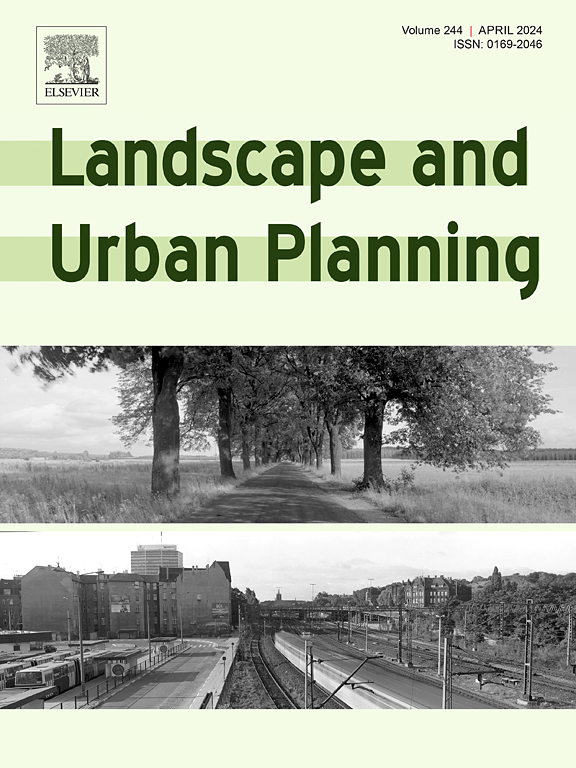Rethinking urban resettlement housing: A production of space perspective on Shanghai’s community edible landscapes
IF 9.2
1区 环境科学与生态学
Q1 ECOLOGY
引用次数: 0
Abstract
As many rural areas in China have recently been urbanized, the establishment of new urban communities has given rise to conflicts over spatial use related to community governance. Using Henri Lefebvre’s theory of the Production of Space as a lens, this study examines the development of edible landscapes and the rationality of spatial change in the Jin-Shui-He-Jing-Yuan Community in Shanghai, China. The findings reveal that: First, the spatial transformation of new urban neighborhoods is a result of shifts in productivity and the interaction between government-led power and capital. Second, these new, rapid and extensive urban community spaces are disconnected from the real needs of residents, resulting in changes in spatial characteristics and conflicts over spatial domination. Third, the cultivation of edible landscapes herbs offers a community governance approach to resolving spatial usage conflicts, providing practical community-based experience for the preservation and development of traditional Chinese medicine culture. Fourth, this study finds that edible landscapes empower users with greater participation, allowing them to become active agents in space and fostering interaction among different community groups, whereas users of traditional urban community green space can only passively accept spatial arrangements. The study demonstrates that introducing edible landscapes helps alleviate spatial usage conflicts in new urban communities and enhances community governance, offering important insights for government policies and the development of urban communities.
重新思考城市安置房:上海社区食用景观的空间生产视角
随着中国许多农村地区城市化进程的加快,新城市社区的建立引发了与社区治理相关的空间利用冲突。本研究以列斐伏尔的空间生产理论为视角,考察了上海金水河景苑社区食用景观的发展及其空间变化的合理性。研究结果表明:第一,城市新街区的空间转型是生产力转移和政府主导权力与资本相互作用的结果。其次,这些新的、快速的、广泛的城市社区空间与居民的实际需求脱节,导致空间特征的变化和空间支配的冲突。第三,食用景观草药的种植为解决空间使用冲突提供了一种社区治理方式,为传统中医药文化的保存和发展提供了社区实践经验。第四,本研究发现,食用景观赋予用户更大的参与性,使其成为空间的主动主体,促进不同社区群体之间的互动,而传统城市社区绿地的用户只能被动地接受空间安排。研究表明,引入可食用景观有助于缓解城市新社区的空间使用冲突,增强社区治理,为政府政策和城市社区发展提供重要见解。
本文章由计算机程序翻译,如有差异,请以英文原文为准。
求助全文
约1分钟内获得全文
求助全文
来源期刊

Landscape and Urban Planning
环境科学-生态学
CiteScore
15.20
自引率
6.60%
发文量
232
审稿时长
6 months
期刊介绍:
Landscape and Urban Planning is an international journal that aims to enhance our understanding of landscapes and promote sustainable solutions for landscape change. The journal focuses on landscapes as complex social-ecological systems that encompass various spatial and temporal dimensions. These landscapes possess aesthetic, natural, and cultural qualities that are valued by individuals in different ways, leading to actions that alter the landscape. With increasing urbanization and the need for ecological and cultural sensitivity at various scales, a multidisciplinary approach is necessary to comprehend and align social and ecological values for landscape sustainability. The journal believes that combining landscape science with planning and design can yield positive outcomes for both people and nature.
 求助内容:
求助内容: 应助结果提醒方式:
应助结果提醒方式:


